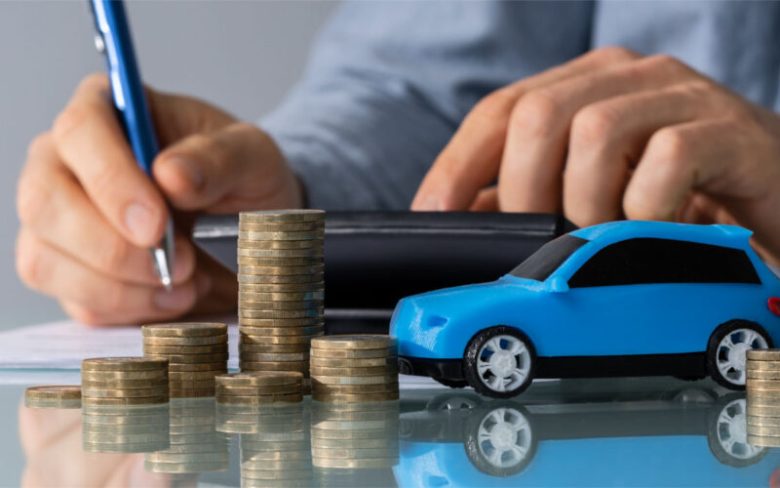Buying a car is a big financial decision, and most people need to take out a loan. A down payment is one of the most important parts of getting a car loan. A down payment is the first amount you pay upfront when buying a car, and it has a big impact on many different aspects of a car loan. Understanding how a down payment affects your car loan can help you save money over time and make smarter financial decisions.
1. Understand the Deposit
Typically, the down payment is expressed as a percentage of the total cost of the car. For example, if you pay 10% of the cost of a €20,000 car, you will have to pay €2,000 upfront. The car loan covers the remaining $18,000. A down payment reduces a lender’s risk because it lowers the entire loan amount. It also shows your commitment to the deal.
2. Reduce the Total Loan Amount
Reducing the total amount you need to finance is one of the most immediate effects of a down payment. The loan amount decreases as the down payment increases. For example, if you buy a car for $25,000 and make a down payment of $5,000, you only need to borrow $20,000. The terms of your loan and your overall financial obligation may be significantly affected by a reduction in the loan amount.
3. Subtract Monthly Installations
Lower monthly costs are generally associated with a smaller loan amount. This is because a smaller loan is obtained with a shorter repayment term. A car loan with a lower monthly payment can be easier to manage within your budget and ultimately reduce your financial burden. For example, if you finance $20,000 over five years at a 5 percent interest rate, your monthly payment would be approximately $377. If you financed $15,000 under the same terms, your monthly payments would be approximately $283.
4. Reduce the Amount of Interest Payable
You can lower the overall interest you pay on your loan by making a larger down payment. Because the interest depends on the loan balance, you pay less interest on smaller loan amounts. Using the previous example, financing $20,000 at 5 percent interest over five years would result in a total interest payment of approximately $2,645. In the same scenario, financing $15,000 would mean paying approximately $1,984 in interest. This can lead to significant savings during the credit process.
5. Strengthen Loan Terms
Lenders view borrowers with larger down payments as less risky. This often results in better financing conditions, such as cheaper interest rates. A lower interest rate can help you save money during the borrowing process by lowering your overall borrowing costs. Additionally, borrowers with larger down payments can negotiate better terms with lenders because they will have greater bargaining power.
6. Faster Build-up of Equity
The difference between the value of your car and the amount you owe on it is called equity. Increasing the down payment is equivalent to increasing the starting power of the car. There are many benefits to doing this. First, if you have to sell the car before you pay off the loan, you are more likely to receive the sales price to cover the remaining loan amount. Second, because cars depreciate over time, having greater equity can help prevent your loan from upside down, which happens when you owe more than the car is worth.
7. Prevent Value From Shrinking
Once a car is driven off the lot, it begins to rapidly depreciate and continues to do so for the first few years. You can protect yourself against depreciation by making a large down payment. If you reduce your loan amount and increase your equity, you are unlikely to borrow more than the depreciated value of the car. Negative equity can lead to financial instability, especially if the vehicle is totaled in an accident and has to be sold.
8. Avoid Gap Insurance
If your car is totaled or stolen, gap insurance will pay out the difference between the market value and the amount you owe. If you make a significant down payment, you may be able to avoid the need for gap insurance, reducing the chance of negative equity. This can lower your overall vehicle-related costs and lower your car insurance premiums.
9. Easier Loan Acceptance
It may be easier to get a car loan with a larger down payment. Lenders take into account the Loan-to-Value (LTV) ratio, which is the difference between the loan amount and the value of the car. A lower Loan-to-Value ratio indicates less risk for the lender. Especially if you have a low credit score, making a large down payment can lower your loan-to-value ratio, increasing your chances of getting a loan.
10. Monetary Flexibility
A larger down payment can also give you more financial freedom. When your interest rate and monthly payments are lower, more of your income is available for saving, investing, or other needs. This flexibility can help you deal with unforeseen expenses and financial problems more easily, and can also improve your overall financial health.
Conclusion
Down payments have significant and varied impacts on auto loans. A larger down payment can improve loan terms, lower interest rates, reduce the size of the loan, lower monthly payments, and accelerate the build of equity. Additionally, it protects against depreciation, can eliminate the need for gap insurance, and facilitates loan underwriting. Understanding these benefits can help you make informed decisions when financing your vehicle, improving your financial situation and giving you greater peace of mind. Whether you’re buying a new or used car, determining your down payment amount is an important stage in the car buying process.
FAQs
1. What is the recommended down payment amount for buying a car?
In general, it is recommended to pay at least 20% of the purchase price for a new car and 10% for a used car. This lowers your monthly payments, helps you finance less, and potentially increases your chances of better loan terms.
2. Should I save money to buy a car?
Some lenders indeed offer zero-down car loans, but these loans sometimes have higher interest rates and more expensive monthly payments. In addition, you may be “upside down” with the loan, that is, because the loan exceeds the value of the car.
3. How does my interest rate affect my down payment?
Paying more can get you a cheaper rate. Lenders view a large down payment as a sign of reduced risk, which can lead to better loan terms, such as a lower interest rate.
4. If I make a larger down payment, will my monthly payments be lower?
Yes, a larger down payment will reduce the total amount you need to borrow, which will lower your monthly payments. A lower loan amount usually makes monthly payments more manageable and fits your spending plan.
5. Will a larger down payment increase my chances of being approved for a loan?
Yes, you can increase your chances of getting a car loan by making a larger down payment. By lowering the Loan-to-Value (LTV) ratio, the lender takes less risk when granting the loan. This can be especially helpful if you have a bad credit score.
6. What are the benefits of paying a larger down payment?
There are several benefits to a larger down payment, including lower monthly payments, better loan terms, cheaper interest rates, more equity in your car, depreciation protection, and possibly even gap insurance. It also gives you more financial flexibility and increases your chances of being approved for a loan.



